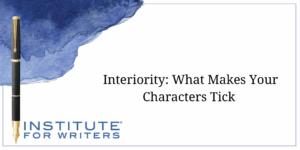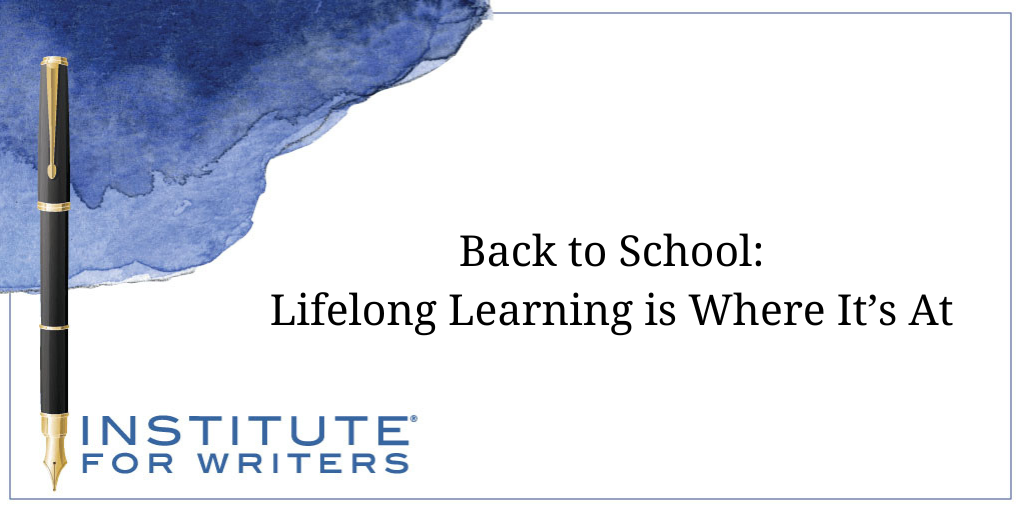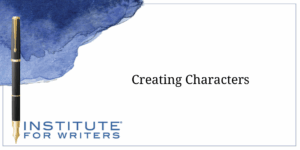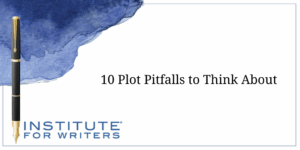
Interiority: What Makes Your Characters Tick
As you seek to create characters, you will also want to work to strengthen the interiority of those you are writing about.

Students in most areas of the country are getting ready to go back to school now that summer is almost over and stores are displaying all sorts of school-related supplies. Your own school days may be firmly behind you, but it is a worthwhile goal to continue challenging your mind and looking for new educational opportunities. Lifelong learning is the best way to expand your knowledge, especially in those areas you have an interest in, and keep up the pursuit for life. 
Indeed, lifelong learning can be an enjoyable part of those years after formal education is complete, since it is self-directed and you can choose the subject matter, the type of instruction, and find ways to continue learning at a varied cost (to include free coursework). Use this back-to-school month to inspire you—gear up and find a course, conference, book talk author reading, or some other way to learn more about the skill of writing. Here are some ideas:
Look for adult education opportunities near where you live, offered by your public library, a community college, or the city where you reside. If you are retired, the chances are good that a senior center near you will offer a writing course or a book group of some form. These types of courses tend to be low- or no-cost and by visiting a class a few times you will know whether it is designed for your needs. You may also end up meeting and networking with other writers (or even just one) who want to form a critique or discussion group that could be mutually beneficial.
As is possible, get out and about. Look for author talks in your area, book signings, and speakers who may be discussing a topic you are interested in and can take notes and write about later. Absorbing as much information as you are able can make you a better writer.
Read, read, read! Even though I remark on this to the students I work with, plenty of them mention their general level of busyness and seem to not understand the importance of reading constantly.
Not only do many nonfiction books provide interesting and valuable information about topics you may want to write about, but fiction books are also—as I tend to say often—almost like textbooks for writers. If you identify an author whose style you particularly like, you can carefully study how they are formatting and writing their books. Sentence structure, word choice, realistic dialogue, character development are all features you will want to carefully make notes about with successfully published writers’ works. This takes time and falls into the category of continuing to learn and improve your skills.
Books specifically about the craft of writing are an excellent source of good ideas for improving your writing. Most writers are familiar with Stephen King’s book, On Writing: A Memoir of the Craft (2000), but some others that are frequently mentioned as being interesting and helpful are:
Still Writing: The Perils and Pleasures of a Creative Life (2013), by Dani Shapiro
The Forest for the Trees (2000), by Betsy Lerner
The Writing Life, (1989), by Annie Dillard
 These may be found at your public library and your librarian may suggest others (or you may find them in that section of the shelf). Ann Patchett recently annotated her classic Bel Canto (2001) by writing comments to herself and revision suggestions in the margins. This turned out to be almost a look inside her writer’s brain and the annotated version is full of insight about her process.
These may be found at your public library and your librarian may suggest others (or you may find them in that section of the shelf). Ann Patchett recently annotated her classic Bel Canto (2001) by writing comments to herself and revision suggestions in the margins. This turned out to be almost a look inside her writer’s brain and the annotated version is full of insight about her process.
The successful fiction writer Sue Monk Kidd (she has written many excellent books, to include The Secret Life of Bees, 2001) has her own writing book coming out in October, Writing Creativity and Soul, which from the summary sounds like a helpful inside look at her own process.
Your public library may subscribe writing magazines and is a cool, quiet place to read them. See what your library may offer as a print- or electronic subscription.
Podcasts that feature discussions about writing are another valuable source of learning.
Some particularly good and helpful podcasts include:
The Book Case (search for the episodes featuring author J. Ryan Stradal because he is the “writer in residence” for the podcast and makes appearances from time to time to discuss his writing process and also his progress with his current book. It is all immensely interesting.
Bookends with Mattea Roach is very good because she features a diverse assortment of writers and each episode involves one current author whom she is interviewing. She asks questions about how the writer found publishing success and general questions about how they write.
The Sh*t No One Tells You about Writing. This is perhaps the most helpful podcast for writers because most episodes begin with the host reading a book query letter aloud (the letter’s writer is seeking an agent) and then critiquing it. The host also discusses the beginning pages of the book submitted by the writer. The writing tips gleaned from this podcast are invaluable. 
I also find Book Riot – The Podcast, and Sarah’s Bookshelves Live to be worth listening to during my walks, and I urge you to look at and listen to the archived (and easy to find) episodes of How Writers Write, which was a favorite of mine for years because the host interviewed an individual writer each week and asked good questions about their way of writing. Although Brian Murphy no longer creates new episodes (as of 2020) the 59 that are available are worth your time.
Opportunities for lifelong learning about writing are abundant and during this back-to-school season it is easy to get inspired to find ways to strengthen your own writing process. Our next blog post will discuss courses available to writers, to feature the Institute for Writers and the Institute for Children’s Writing, schools that are still thriving after over fifty years because of the individualized teaching style still in practice.
Until then, consider following me on Instagram and Goodreads, both @susanludwig. You can also follow the Institute for Writers on Substack @instituteforwriters.
Susan Ludwig, MEd has been an instructor with the Institute of Children’s Literature for almost twenty years. Susan’s writing credits include teacher resource guides, English language learner books, and classroom curriculum for elementary through high school students. A former magazine editor, she assesses students’ written essays as a scoring director for the ACT and SAT exam. When she is not writing or working, she is usually found playing with her grandsons or curled up with a good book.

As you seek to create characters, you will also want to work to strengthen the interiority of those you are writing about.

Character development is an interesting part of writing but may be among the most time consuming and significant in your story.

Plot can be tricky, and, as a writer, you need to be aware of what makes or breaks plot. Take a look at 10 different things to avoid in your own writing.
1000 N. West Street #1200, Wilmington, DE 19801
© 2024 Direct Learning Systems, Inc. All rights reserved.
1000 N. West Street #1200, Wilmington, DE 19801
© 2025 Writewell, LLC. All rights reserved.
1000 N. West Street #1200, Wilmington, DE 19801
©2025 Writewell, LLC. All rights reserved. Privacy Policy.